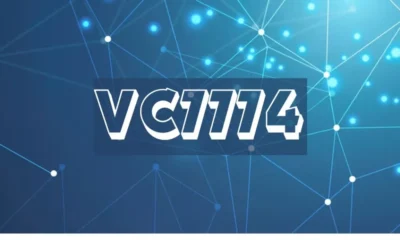Education
The Future of Inclusive Early Childhood Education

Table of Contents
- Introduction to Inclusive Early Childhood Education
- Key Principles of Inclusivity
- Benefits of Inclusive Education for All Children
- Overcoming Challenges in Inclusive Classrooms
- Innovative Strategies in Inclusion
- Role of Educators and Parents
- The Impact of Policy and Legislation
- Looking Forward: Trends and Predictions
Introduction to Inclusive Early Childhood Education
Inclusive early childhood education integrates children of all abilities and backgrounds into a single learning environment, ensuring equal access to quality education. This approach, particularly in preschools in St Johns County, promotes a diverse and enriching atmosphere for young learners. Inclusive education combats segregation and promotes unity, fostering empathy, acceptance, and understanding. Schools that adopt inclusive approaches not only benefit children with disabilities but also enrich the social fabric and learning experiences for all students involved.
Key Principles of Inclusivity
Inclusivity in education is based on equity, accessibility, and participation. Equity ensures each child receives the necessary support, promoting fairness in educational opportunities. Accessibility eliminates barriers to meaningful learning, while participation encourages active involvement in diverse classroom activities. Modern classrooms use adaptive tools and technologies, such as digital platforms, to provide individualized learning experiences, making learning more inclusive. These principles are applied in modern classrooms to foster a sense of belonging and participation.
Benefits of Inclusive Education for All Children
Inclusive education benefits all children, including those with disabilities, by improving access to resources and fostering friendships. It also encourages empathy and an inclusive mindset among students. UNICEF studies show that inclusive environments boost cognitive skills by allowing children to interact and collaborate with diverse peers. Inclusive classrooms prepare children for the real world by reflecting on the diversity they will encounter, encouraging appreciation of differences and collaboration towards common goals, skills essential in the modern workforce.
Overcoming Challenges in Inclusive Classrooms
Inclusive education faces challenges like large classrooms, limited resources, and inadequate teacher training. However, challenges may be addressed with careful planning and ongoing professional growth. Tiered support systems and collaborative teaching models can allocate resources based on individual student needs. Platforms like Edutopia provide valuable insights and techniques for creating inclusive learning environments. These strategies can be applied in teams to design and implement inclusive strategies, ensuring a supportive and inclusive learning environment.
Innovative Strategies in Inclusion
Inclusive education relies on innovation and technology, with assistive technologies like communication devices and interactive software enabling personalized learning experiences. Differentiated instruction allows students to engage with content deeply. At the same time, sensory-friendly environments and mindfulness practices help students with sensory processing challenges and anxiety and contribute effectively to the learning process.
Role of Educators and Parents
Inclusive education success relies on collaboration between educators and parents. Teachers adapt lesson plans to meet diverse learning needs, while parents maintain open communication and reinforce inclusive values at home. This partnership creates a supportive system that addresses individual child needs, providing consistent encouragement and understanding at school and home.
The Impact of Policy and Legislation
Inclusive education is shaped by policy and legislation, such as the Individuals with Disabilities Education Act (IDEA) in the US, which mandates equal access to education for children with disabilities. This law guarantees a positive learning environment for every student by encouraging schools to implement inclusive practices. Policies are continually revised to meet diverse student needs, demonstrating a commitment to fostering inclusive school environments.
Looking Forward: Trends and Predictions
Inclusive education trends are characterized by technology and personalized learning strategies to enhance educational inclusivity. The World Economic Forum reports that these advancements will continue to shape the academic landscape, promoting adaptive and flexible learning experiences. Global awareness and commitment from educational leaders are promising for inclusive education, aiming to create a world where every child receives quality education regardless of their background or abilities.
Education
Full-Time vs. Part-Time MBA: Which Fits Your Career Goals?

Have you considered an MBA but are unsure which format suits your career goals? Many professionals wonder when to get an MBA, especially when balancing education with work and personal commitments. Choosing between a full-time and part-time MBA can be challenging, as both have unique benefits. Understanding the key differences between these options can help individuals make an informed decision based on their career aspirations and lifestyle.
Understanding the Full-Time MBA Experience
A full-time MBA is an intensive program designed for those who want to focus entirely on their studies. It typically lasts between one to two years, depending on the institution. Students in a full-time program engage in a structured learning environment, networking opportunities, and internships that provide hands-on industry experience.
This option is ideal for individuals looking for a career change or a significant boost in their professional growth. Since students dedicate all their time to studies, they can fully engage in projects, research, and networking events. However, one of the main challenges of a full-time MBA is stepping away from work, which means losing income during the study period.
Why a Part-Time MBA Works for Working Professionals
A part-time MBA is a flexible alternative that allows students to study while continuing their job. Unlike a full-time program, which requires complete focus on academics, a part-time MBA spreads the coursework over a longer period, usually between three to five years.
This format is perfect for individuals wanting to advance their skills without interrupting their careers. Students see real-time benefits by applying knowledge directly to their work, making learning more practical. However, balancing work, studies, and personal life can be demanding and require strong time management.
Which MBA is Better for Career Growth?
Choosing between a full-time and part-time MBA largely depends on the student’s career goals. Those aiming for leadership roles in new industries may find that a full-time MBA provides the best environment for networking and career transformation. Since these programs often include internships, case studies, and global exposure, they create excellent career-shift opportunities.
On the other hand, individuals already working in stable job but want to enhance their skills for internal promotions may find a part-time MBA more beneficial. Implementing knowledge immediately at work allows for steady career progression without the risk of leaving a job.
Regardless of the format, obtaining an MBA from a reputed institution, such as the University of Phoenix, can provide valuable skills and credibility in the job market.
Financial Considerations: Cost vs. Return on Investment
Cost is a significant factor in deciding between a full-time and part-time MBA. A full-time program often comes with higher tuition fees and additional expenses such as relocation or living costs. Moreover, the financial impact can be considerable since students do not earn a salary during this parable.
On the other hand, a part-time MBA allows students to continue earning while studying, reducing the financial strain. Some companies also offer tuition reimbursement, making it a cost-effective option for working professionals. However, since part-time MBAs take longer, the return on investment may not be as immediate as in a full-time program.
Deciding Which MBA Suits Your Lifestyle and Goals
A full-time MBA is ideal for individuals who want a complete career shift and have financial stability. At the same time, a part-time MBA is perfect for professionals who want to advance in their current field without disrupting their jobs and income.
Determining when to get an MBA involves considering career aspirations, financial stability, and lifestyle preferences. Understanding these factors will help prospective students make a choice that aligns with their long-term success.
Education
Interactive Learning with Childmud.net

In today’s fast-paced digital era, providing children with engaging and interactive learning experiences is more crucial than ever. Childmud.net emerges as a beacon of innovation, redefining how children interact with educational content. This platform leverages technology to make learning an enjoyable, enriching, and impactful journey for young learners.
What is Childmud.net?
Childmud.net is an online educational platform designed to foster interactive learning experiences for children of all ages. It combines games, multimedia content, and educational tools to create a dynamic learning environment. Whether it’s reinforcing basic math skills, enhancing reading comprehension, or exploring creative arts, Childmud.net caters to diverse educational needs.
Key Features of Childmud.net
1. Interactive Learning Modules
Childmud.net offers a variety of modules designed to captivate young minds. These include:
- Gamified Lessons: Turning traditional subjects into exciting games.
- Storytelling Sessions: Encouraging creativity and literacy through immersive narratives.
- Hands-On Activities: Promoting critical thinking through virtual experiments and challenges.
2. Personalized Learning Pathways
Every child is unique, and Childmud.net recognizes this by offering personalized learning pathways. The platform adapts to the child’s pace, ensuring they can master concepts without feeling overwhelmed.
3. Parental and Teacher Integration
Childmud.net promotes collaboration between parents, teachers, and students. Parents can monitor their child’s progress, while teachers can assign tasks, track performance, and provide feedback through the platform.
4. Safe Online Environment
Safety is a top priority. Childmud.net ensures a secure, ad-free space where children can focus solely on their learning without distractions.
The Benefits of Interactive Learning on Childmud.net
Interactive learning goes beyond passive content consumption. With Childmud.net, children:
- Stay Engaged: The interactive nature keeps boredom at bay, enhancing focus.
- Develop Problem-Solving Skills: Hands-on activities encourage analytical thinking.
- Build Confidence: Achieving milestones in games and modules fosters self-esteem.
- Enjoy Learning: The gamified approach makes education something to look forward to.
Testimonials from Parents and Educators
Parents and educators worldwide have praised Childmud.net for its transformative impact on children’s education. A parent from New York shared, “Childmud.net has made my child excited about learning. They’re always eager to explore new modules!” Similarly, an elementary teacher from Texas stated, “It’s a fantastic tool for blending fun with education in the classroom.”
The Future of Childmud.net
As technology evolves, so does Childmud.net. The platform is continually expanding its features, incorporating artificial intelligence to enhance personalization and developing new content to keep up with educational trends. Its mission is to make quality education accessible, engaging, and effective for every child.
Final Thoughts
Childmud.net is more than an educational platform; it’s a gateway to a world where learning becomes an adventure. By combining technology with creativity, it ensures children not only absorb knowledge but also enjoy the process. For parents and educators looking for a reliable tool to complement traditional teaching methods, Childmud.net is the ultimate choice.
Education
5 Things to Consider When Choosing Your Degree

Are you ready to get enrolled in a college and wondering about which degree to select? If yes, then you are here at the right place. Consider the following five things when choosing a degree.
Determine Your Career Goals
It is important to know that the degree that you are enrolled in today will shape the career that you will have tomorrow. On that note, before getting enrolled in a course on campus or offline, be brutally honest with yourself and establish what you are looking for in a career.
If money is of the utmost importance to you, and it comes with a prestigious position. You might want to opt for an MBA and learn other skills along the way as a guarantee to climb up the corporate ladder sooner than everyone else.
On the other hand, if money isn’t really important, you can consider studying communication or social studies to run an NGO. You can opt for an MHA degree if you want to leave a mark in the world and make a difference in the field of medicine. Check out the differences between MBA vs. MHA so you can make the right choice.
Consult with Professional Mentors
If you don’t know which degree to opt for, you might want to talk to an industry expert – especially after you have narrowed down a handful of educational paths while keeping the final careers in mind. Talking to mentors or industry experts will help you further narrow down the list, as you will know what you would rather want and what you would rather not.
Understand the Behind-the-Scenes
By talking to experts, you will get to understand what the potential careers will feel like after getting graduated. You will get to know about the behind-the-scenes and find out more about the industry as a whole.
You will be getting insights into the day-to-day practices and best opportunities for future growth. This way, you will get a clear understanding of the educational path as well as the subsequent career.
Do Your Research on the Job Market
Before choosing a degree, we recommend doing your research on the job market. In simpler words, you should always have a plan for how things will be and where you will start after completing your degree. For instance, if you are planning to do your MBA, you should know which corporations you will be reaching out to for internships or to get practical experience for your freshly acquired skills.
On that note, apart from talking to the experts in the industry or your professors, you will also want to do in-depth research on the job market and see whether there are good opportunities in our selected field.
Assess Your Strengths
When it comes to choosing a degree, you should keep in mind the potential career that is bound to follow after you have graduated. Make sure that the chosen degree suits your personality and works in your favor in terms of being aligned with your strengths. Make sure that your chosen degree fills you with a sense of purpose and that you enjoy the progress of learning while keeping the end goal in mind.
-

 Tech2 years ago
Tech2 years agoUnderstanding “преводеч” in the Modern World
-

 Fashion2 years ago
Fashion2 years agoExploring the Fascinating World of λιβαισ
-

 Lifestyle2 years ago
Lifestyle2 years agoJustin Billingsley Connecticut: A Journey of Impact and Leadership
-

 Tech2 years ago
Tech2 years agoUnderstanding ПРЕВОДЕЧ: Unlocking Global Communication
-

 News2 years ago
News2 years agoUnveiling the Mystery: Paige Bueckers’ Boyfriend Revealed
-

 Tech2 years ago
Tech2 years agoGeekzilla.tech Honor Magic 5 Pro Ultimate Guide.
-

 Blog2 years ago
Blog2 years agoThe Ultimate Guia Silent Hill Geekzilla: Comprehensive Guide
-

 Business2 years ago
Business2 years agoExploring the Success Story of VC7774
